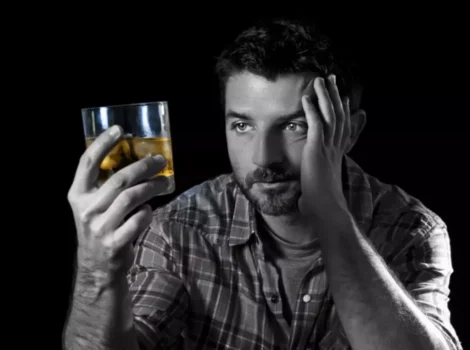PRODUCT Description
Staying motivated in addiction recovery is essential for achieving long-term success and leading a healthy, fulfilling life. Recovery is a lifelong commitment, and staying resilient and motivated in the face of challenges is the key to a happier, healthier future. Each of these programme types – their regulatory approach and clinical and organisational practices – would have very different effects on their clients’ self-regulation.
Optimizing work and off-job motivation through proactive recovery strategies
- When you find yourself in such a situation, you might want to consider using the access to recovery (ATR) voucher to pay for your treatment.
- Next would likely be a goal related to mental health (manage mental illness) and one or more related to physical health (rest, physical activity, medications, healthy diet, etc.).
- Although waning motivation can signal depression, this isn’t always the case.
- With a positive attitude, individuals are more likely to embrace the support and resources available to them during the recovery process, leading to a more fulfilling and lasting transformation.
In addiction recovery, motivation is the fuel that keeps people on track, helps them make good changes, and fight temptations. It is important to emphasize the long-term health effects of addiction go beyond physical health. Substance abuse often causes psychological and emotional issues that affect quality of recovery motivation life, such as worsening relationships, losing job or educational opportunities, financial problems, and low self-esteem. Taking these into account reinforces the necessity for sustained motivation in recovery, allowing individuals to achieve not only physical healing but also emotional and social restoration.
Stay in control of your schedule
Using strategies can help individuals overcome obstacles and remain dedicated to their sobriety objectives. This blog post will discuss the importance of motivation in the recovery journey and suggest ways to maintain it, ensuring progress toward long-term sobriety and personal development. In addition, some mental health conditions make it more difficult for a person to participate in guiding their own treatment plan. For instance, some people experiencing psychosis may not view themselves as having a mental illness. The hallmark principle of the recovery model of mental health is the belief that people can recover from mental illness to lead full, satisfying lives.
Tips for Staying Motivated
The achievement of internal motivation likely occurs as people progress to more advanced stages of recovery. Although each need is important, I would suggest that instilling a sense of autonomy is the sine qua non of recovery-oriented practice for at least three reasons. First, a feeling of autonomy is a basic condition for self-motivated https://ecosoberhouse.com/ behaviour, a critical component of recovery and of well-being. Second, because serious mental illness may undermine and intermittently impair a person’s ability to initiate desired behaviours and express preferences, the deliberate shoring up of this capability must be a basic aspect of treatment for such illness.
- Being of service to others in recovery can provide purpose and reinforce commitment.
- Despite what they say in the rooms, sometimes we don’t always get sober for ourselves.
- Mental health programmes play a basic role in promoting both internal and more salutary forms of external motivation.
- Consider smaller actions and short-term goals that could be related or require the same skill set—anything you can think of that is realistic for the now.
- Thus, employees might effectively combine proactive off-job strategies with subsequent job crafting strategies, potentially explaining the direct effects found between proactive recovery strategies and next-day work stress and performance.
- In a controlling programme, for example, the primary regulatory mechanism will be the threat of sanctions for behaviour viewed as undesirable.
How Childhood Trauma Affects Health Across a Lifetime Nadine Burke Harris (
Within the group setting, participants can openly discuss their challenges, achievements, and setbacks, knowing they are in a judgment-free zone. The power of group therapy during rehab lies in its ability to promote peer support and encouragement, which can be instrumental in preventing feelings of isolation during recovery. Together, group members can gain valuable insights, share coping strategies, and develop meaningful relationships that facilitate growth and healing.
- Although these early narratives, and many subsequent ones, each described a unique path to recovery, common themes have been identified (Reference Jacobson and GreenleyJacobson & Greenley, 2001; Reference RidgwayRidgway, 2001; Reference DavidsonDavidson, 2003).
- He admitted it wasn’t very reasonable and we turned to more conventional steps to better his financial condition.
- In broad terms, then, how do programmes differ with respect to these regulatory mechanisms?
- People gain access to resources, knowledge, and experiences that aid motivation.
- Establishing a support system can offer encouragement, direction, and responsibility throughout the recovery journey.
PositivePsychology.com’s Mental Health Resources
Although both employee wellbeing and performance are valued by organizations, achieving them conjointly is not simple in practice. Prior studies have highlighted the role of daily experiences of recovery from work stress for employee wellbeing and performance. In a work-life characterized by pressures to intensify the pace of work, employees may increasingly use proactive efforts to shape their daily off-job time to effectively recover from stress and maintain their wellbeing and performance.
- Nevertheless, for many people with serious mental illness, the treatment setting, a part of the larger system of care, can be a source of genuine support and an important component of the recovery process.
- They provide a secure place for open and honest conversations about obstacles, successes and further progress.
- In this section, we’ll explore various aspects such as identifying the root causes of lack of motivation, refocusing mindset, goal setting, acknowledging progress, and surrounding oneself with a supportive network.
In fact, many studies have found brief motivation intervention to be quite effective in sustaining recovery. Benefits of motivational interviewing during rehab are significant in helping individuals overcome addiction. By employing this client-centered counseling approach, therapists can elicit intrinsic motivation in patients, fostering a deeper commitment to change. During sessions, therapists benefit from motivational interviewing during rehab by encouraging open dialogue and exploring patients’ ambivalence towards recovery. This technique empowers individuals to discover their own reasons for change, enhancing their self-efficacy and confidence in the recovery process. It sparks the search for treatment, creating healthier options, and forming new coping mechanisms.
- - 574
- ! Без
- ! Без рубрики
- !Fortune tige
- "fc Seoul Vs Jeju United Match Prediction & Betting Ideas With Live Odds - 490
- "mostbet Az-90 Kazino Azerbaycan Lap Yüksək Bukmeyker Rəsmi Sayt - 878
- "mostbet En Vivo: Haz Tus Pronósticos Sobre Directo Y Disfruta De Su Buffering" - 786
- +btoct
- +novPU
- 1
- 1win
- 1Win AZ Casino
- 1Win Brasil
- 1win Brazil
- 1WIN Casino Brasil
- 1win India
- 1WIN Official In Russia
- 1win Turkiye
- 1win uzbekistan
- 1winRussia
- 1wins-moldova.mdro-md x
- 1x-bet.downloa
- 1xbet egypt
- 1xbet Russian
- 1xbet3
- 1xbet32
- 1xbet4
- 1xbet51
- 1xbet52
- 1xbet61
- 1xbet62
- 1xbet82
- 2
- 2024te-Yeni-Üye-Olmanın-Avantajları-Deneme-Bonusu-Veren-Casinoslar.html
- 20Bet Deutschland
- 212
- 222
- 22bet Schweiz
- 26
- 2nd level
- 3
- 3dinvesting.com
- 4
- 5
- 5trucks.ru 500
- 6
- 7 slots
- 7slots
- 7к-казино
- 8
- 9
- a16z generative ai
- a16z generative ai 1
- acad
- Accessories
- adaptationfestival.gr
- adm
- adobe generative ai 1
- adobe generative ai 2
- afyonsosyetepazari.com 1
- AI Chatbot News
- AI News
- aliexpres.com.ua - офіційний сайт Аліекспрес в Україні
- alizeyeniufuklar.com
- almaradio.gr
- amminex.net 2
- amnistiepdm.org - Official Website of Safe Casino Sites in South Korea
- anbhoth.ie
- ankaratarotfali.com 2
- antalyaerenhali.com 1
- antalyaerenhali.com 2
- anushkatrivedi.comen-bd x2
- Apex-Clover-Link-Slot-Oyna---Kazançlı-Çevrimler.html
- archpoints.gr
- Artificial intelligence
- Artificial intelligence (AI)
- asian brides
- augustent.com 1
- Ausländische Online Casinos Schweiz – siehe offizielle Website fanarbeit.ch
- auto-info.hr 2
- aviator-game-official.netlify.app 1
- aviatorSITESI_may
- axiomaltd.ru 1500
- Bahigo Schweiz
- ballybunionartsfestival.ie bCasino
- bambturkiye.com 1
- BankOnBet
- bashpirat.ru 2000
- batery.org.in3
- BC.GAME Casino Schweiz
- bedava-slot-siteleri.com 1500
- bedava-slot.com 1500
- bedpage
- behar.hr 2
- belanok.mk
- best-news
- besyohocam.com 2
- bet10
- bet10 casino
- bet10-casino
- bet442casino.co.uk - UK
- Betmgm Bonus Code Nyp1500dm Grants A 20% Deposit Match Or $1, 500 Initial Bet For Broncos-saints 'thursday Night Football' - 862
- Betonred Casino Schweiz
- betspecial.co.uk 2
- Betting Company Mostbet App Online Sports Betting - 111
- bh_aug
- bh_sep
- bhnov
- bhoct
- BHS-Links
- BHTopJun
- Big-Bass-Bonanza-Blaze-Oyun-İncelemesi.html
- Big-Bass-Bonanza-İkili-Kazanma-Stratejileri-ve-İpuçları.html
- Bigger-Bass-Bonanza-Oyna-Ücretsiz---Slots-Oyunu.html
- bilimufku.com 2000
- biznisakademija.hr
- biznisakademija.hr 2
- Bizzo Casino – Offizielle Website in der Schweiz – editori-sesi.ch
- Bizzo Casino Schweiz
- black-seo-links
- Blog
- Blog Lk
- bonanzasitesi_may
- Bonus-Veren-Casino-Oyunları-En-İyi-Seçenekler.html
- Bookkeeping
- Bookmaker Şirkəti Mostbet: Formal Mobil Versiya Icmalı - 336
- bootstrap-3.rucss.php 900
- borka.org.mk
- braintreerec.com2
- brunch-cafe.ru
- BT_Prod_aug
- bt_sep
- btbtnov
- BTTopJun
- Buon Ma Thuot Itinerary: Explore Buon Ma Thuot in 1,2,3, and 4 Days - 115
- Buon Ma Thuot Itinerary: Explore Buon Ma Thuot in 1,2,3, and 4 Days - 534
- cam-girls
- camp-hockey.ru 500
- campionsbb.com 2000
- cashwin casino schweiz
- casino
- casino en ligne fr
- Casino Mostbet Mostbet Kaszinó Értékelés Nagy Nyeremények És Könnyű Kifizetések Mostbet - 733
- casino onlina ca
- casino online ar
- casinò online it
- Casino Oyunları Giris Yukle Bonuslar - 3
- casino-bet10
- Casino-Oyunlar-ve-Slot-Stratejileri-Şansınızı-Artırmanın-Yolları.html
- casinogermanyforpoland
- casinos
- Casinozer Avis +350 + Fondamental Libéralisation Spins Offert 100% Gratuit - 146
- catcasino-mix
- catcasino4
- cc-women-hellas-virtual-events.gr
- ccasino
- cdradvocacy.org
- centralrest.ru 500
- cerkezkoyisilanlari.com 1500
- CH
- Chathub
- Chatib
- chiorc.gr
- CHjun
- christofilopoulou.gr
- chytayemotut.com.ua
- CIB
- ciroblazevic.hr
- Cities
- City COCO
- content2
- Coolzino Casino Schweiz
- creativeworkingplayground.com
- creativeworkingplayground.com 1000
- Cryptocurrency exchange
- Cryptocurrency News
- czbrandss
- Dede-Casino-Kumar-Oyunu-Gates-of-Olympus-Slot-ile-Eğlenceyi-Zirveye-Taşıyın.html
- Deneme-Bonusu-Veren-Siteler-Kazanç-Fırsatlarını-Keşfedin.html
- dirty-talk
- dkmarino.ru 2000
- dogakentkres.com 2
- drop sk, cz
- drugs
- dutchbikeshop.ie Casinoly
- EC
- Echat
- ecospace
- eda-52.ru 500
- edirectory.ie
- Education
- Efsane-Slot-Oyunlar-ve-En-İyi-Kazandırma-Zamanları.html
- Efsanevi-NetEnt-Slot-Oyunlarıyla-Heyecan-Dolu-Bir-Yolculuğa-Çıkın.html
- Efsanevi-Slotlar-Pragmatic-Play-İle-Şansınızı-Deneyin.html
- egt-casino
- EGT-Slot-Oyunları-Eğlence-Dolu-Bir-Dünyaya-Adım-Atın.html
- ekaterina-school.ru
- Electric Motorbike
- Electric Scooter
- Electric Golf Scooter
- Electric Motorcycle
- Electric Tricycle
- Fat Tire Motorcycles
- Mini Electric Scooter
- elena-kapustina.ru 500
- elysiondanismanlik.com 1000
- en-iyi-slotlar.com 1500
- en-kazanl-slot-oyunlar-66b19ona.net 1000
- epilepsi
- epilepsie
- epilessia
- eporner
- Essentiel Casino En Tracé Langue Super Essentiel Répertoire De Août 2024 - 446
- ethnicitycelebration.ie MyStake
- Exploring Mostbet App In India: A Thorough Guide - 788
- ən Yüksək Mastercard Kazino Azərbaycan 2024 ️ ən əla Mastercard Onlayn Kazinoları - 389
- Fairspin-casino
- fapello
- fast
- festivalaki.gr
- find a bride
- findpolice.ru 700
- FinTech
- fishingbaits.ru 2000
- Forex Trading
- free_spins_free
- fruitslotpaly.com
- Future Trends In Crypto Wallets: Whats Next For Ironwallet? By Investing Com Studios - 149
- g
- galernaya20.ru 600
- games
- gates-of-olympus-oyna-demo.com 1000
- gates-of-olympus-oynayanlar
- Gates-of-Olympus-Slot-Dede-Casinoda-Büyülü-Bir-Kumar-Deneyimi.html
- generacijanext.hr 2
- gennaiapaidia.gr
- genunlimited.mk
- geratalentos.pt
- gerbera.cc
- ggokpoker-ru.ru
- ggpoker-ru.ru
- girls-do-porn
- golden-bet-casino.fr - FR
- goteborgwok.se
- haciozkan.com 1000
- hashtagmafia.de
- HellSpin Casino Official Global Website
- heylink.memostbet-giris_may
- Homepage
- httpsbass-bet.eu.comhubonus - HU
- httpsbass-bet.eu.comhumobile - HU
- httpsbass-bet.eu.comhuslots - HU
- httpsbass-bet.eu.complbonus - PL
- httpsbass-bet.eu.complslots - PL
- httpsenergycasino.eu.comhulogin - HU
- httpsenergycasino.eu.complbonuses - PL
- httpsenergycasino.eu.compllogin - PL
- httpsposido-casino.eu.comes - ES
- httpsposido-casino.eu.comeslogin - ES
- httpsposido-casino.eu.comesmobile - ES
- httpsposido-casino.eu.comfr - FR
- httpsposido-casino.eu.comfrlogin - FR
- httpsposido-casino.eu.comfrmobile - FR
- httpsspinanga.eu.comesbonus - ES
- httpsspinanga.eu.comeslogin - ES
- httpsspinanga.eu.comitbonus - IT
- httpsspinanga.eu.comitlogin - IT
- httpswonaco.eu.comfrbonuses - FR
- httpswonaco.eu.comfrmobile - FR
- httpswonaco.eu.comhubonuses - HU
- httpswonaco.eu.comhumobile - HU
- IGAMING
- igry-nardy.ru
- ihnk.ru 700
- ikranalchik.ru 500
- infopot.ru 2500
- inquisitivereader.com z1
- inquisitivereader.comapp z2
- intellectplanet.ru 1500
- Interwetten Schweiz
- iOS-Mobil-Ödeme-Bahis-Siteleri-Rehberi-2024(2).html
- ireland2040.ie 1Bet
- irelandskillslive.ie Rolletto
- iskonstrukcije.hr
- istoriyaplanety.ru 500
- IT Education
- IT Vacancies
- IT Вакансії
- IT Образование
- IT Освіта
- italyanmutfagihaftasi.com 1
- ivermectina
- Ivermectine
- IviBet Schweiz
- Jeetcity casino schweiz
- jk-yagoda.com.ua
- Jogos E Bônus Do Casino Mostbet Pt - 328
- joomla-school.com
- july_bh
- july_bt
- july_rb
- kartonbardakci.net 1000
- kasyno
- Kasyno Online PL
- kazino-onlayn-reyting-luchshih.xyz 2
- kazino-onlayn-reyting.xyz 2
- keepaneye.mk
- kentt.xyz
- kgskouskosh3.ru 4000
- king johnnie
- klen
- konteynerimalatsatis.com 1000
- kromatografi2023.org 1
- kspb2
- kumar-siteleri(1)_1
- kuzeyyrentacar.com 1500
- latin dating
- Learn English Online Together With Native Level Teachers - 311
- legal-casino-siteleri_1_1
- lenovo-smart.ru 2000
- leramiss
- lightnovosti.ru 170
- list crawler orlando
- Listcrawler central jersey
- listcrawler corpus christi
- Listcrawler san diego
- Lotoclub
- lovepang.ie Malina
- luckhome.ru 2000
- luckyladycharm.hr
- machintech.ru
- machintech.ru 500
- magnosolv.hu x
- mail order bride
- mail order wife
- mais2 com
- maisondecharme.ru 1000
- manaki.mk
- marios-grosser-traum.de
- Marsbahissitesi_may
- max-millions.co.uk - UK
- melbet-app.pro2
- melbetapppk.com
- melbetapppk.comen-pk x2
- melbetcanada.org2
- Meritking-Rulet-ve-Sorumlu-Oyun-Dikkat-Edilmesi-Gerekenler.html
- Metefe-ile-Casino-Sitelerinde-Hızlı-Para-Çekme.html
- Mini Bike
- missionaguafria.com
- missionaguafria.com6
- mobil-slot.com 1500
- mobileporngames
- Monro-casino
- Moonwin Casino – Offizielle Seite in Deutschland
- Mosbet: Onlayn Kazino Və Idman Mərcləri - 232
- Mosbet: Onlayn Kazino Və Idman Mərcləri - 815
- Mostbet £5 Free Bet No Deposit Every Day Of The Cheltenham Festival - 178
- Mostbet Affiliate Program Online Bookmaker Mostbet Partners - 124
- Mostbet Affiliate Program Online Bookmaker Mostbet Partners - 773
- Mostbet Affiliate Program: Ultimate Guide For Success - 254
- Mostbet Agent App Download - 968
- Mostbet App Apk Bangladesh Download For Android 2023 - 869
- Mostbet App Download 2024 Free Online Update V6 53 - 875
- Mostbet App Download Apk For Android And Ios - 310
- Mostbet App Download For Android Apk And Ios 2023 - 545
- Mostbet App Download For Android Apk And Ios In Bangladesh - 627
- Mostbet App Download In Pakistan Mostbet Apk For Android - 830
- Mostbet App Download Is Your Gateway To Immersive Casino Gaming - 544
- Mostbet App Download Is Your Gateway To Immersive Casino Gaming 【中途採用ノウハウ】 リクルートエージェント - 886
- Mostbet AZ Casino
- Mostbet Az-90 Kazino Azerbaycan Daha əla Bukmeyker Rəsmi Say - 660
- Mostbet Az-90 Kazino Azerbaycan Lap əla Bukmeyker Formal Sayt วิปัสสนาภาวนาธรรมโมลี - 806
- Mostbet Azerbaycan Yukle Android Apk Və Ios App-d - 248
- Mostbet Bangladesh Application For Android And Ios - 763
- Mostbet Bangladesh Official Site Sports Betting And Casino Freebets And Freespins - 799
- Mostbet Bd Internet Affiliate Marketing For The Partners Études Romanes : Cahiers Numériques De La Jeune Recherche - 278
- Mostbet Betting Company And Casino In Egypt Play And Make Bets - 231
- Mostbet Bonus Code Acquire Up To $1, 000 Bonus Bets - 160
- Mostbet Bonus Code Postnews: Snag $200 In Bonus Bets Or Perhaps $1k Bet Insurance For Yankees-guardians Sport 3, All Sports - 170
- Mostbet Bonus Program Code Rotowire: Get $1000 Promo Cowboys-browns & More Nfl Odds - 138
- Mostbet Cash Earn Money With Mostbet Via Mobcash App - 598
- Mostbet Casino Almost All Inclusive Μπόνους Για Την Πρώτη Κατάθεση - 794
- Mostbet Casino Online ⭐ Register And Get Welcome Bonus Now - 120
- Mostbet Casino Online ⭐ Register And Get Welcome Bonus Now - 252
- Mostbet Casino: Best Slots 2024 App Login - 205
- Mostbet Casino: актуальные зеркала на сегодня, регистрация, вход, скачать Aarambh Corporate Pvt Ltd - 27
- Mostbet Cheltenham Festival 6th Horses Daily Problem Win Approximately £250k" - 315
- Mostbet Com Live-casino In Bangladesh: Real Casino Action Online! - 70
- mostbet Com Sports Betting On The App Store - 233
- Mostbet Ghana Review Totally Free Bets Up In Order To Ghs 200 Oct 2024 - 875
- Mostbet Giriş Mostbet Türkiye Güncel Giriş Adresi - 999
- Mostbet Kaszinó Online Hivatalos Oldal Mostbet Casino Hungary Nyerőgépek, Bónuszok, Bejelentkezés - 312
- Mostbet Login To Your Online Casino Personal Account In Bangladesh! - 432
- Mostbet Mobil Tətbiq: Azərbaycandan Olan Oyunçular ötrü Icmal 2023 - 639
- Mostbet Mobile App: Review For Players From Azerbaijan 2024 - 963
- Mostbet Nepal: Subscribe With The 46,000 Rs Welcome Bonus - 824
- Mostbet Online Casino And Betting Platform In Pakistan Mobile App - 684
- Mostbet Online Casino And Betting Platform In Pakistan Mobile App [newline]baixar O Mostbet App Para Android Apk E Ios Grátis - 591
- Mostbet Online Casino And Betting Platform In Pakistan Mobile App [newline]baixar O Mostbet App Para Android Apk E Ios Grátis - 811
- Mostbet Overview 2024 Can A Person Trust This Gambling App?" - 775
- Mostbet Pakistan: Official Sports Betting Site 125% Bonus Login - 743
- Mostbet Partners Affiliate Program Review 2023 Upto 60% Revshare - 811
- Mostbet Partners Reviews Read Customer Service Reviews Of Mostbetpartners - 231
- Mostbet Pennsylvania Casino Added Bonus Code Bookies: Get $500 Match Benefit + 100 Moves For October 18th - 922
- Mostbet Portugal Receba Um Bónus De Até 1400 Pln Na Mostbet Pt Hoje! - 357
- Mostbet Registration How You Can Sign Up & Log In" - 457
- mostbet tr
- Mostbet UZ Kirish
- Mostbet Uzbekistan Официальный Сайт Спортивных Ставок И Онлайн-казино Uz 2023 - 7
- Mostbet Wettunternehmen Und Online-casino In Deutschland - 710
- Mostbet-az 45 Azərbaycanda Bukmeker Və Kazino Reward 550+250f 金州資訊 - 821
- Mostbet-az90 ⭐️giriş Və Bonuslar - 174
- Mostbet-az90 Azərbaycandakı Şirkətin Icmalı - 541
- Mostbet-az91: İdman Mərcləri Və Gir วิศวกรรมสถานแห่งประเทศไทย ในพระบรมราชูปถัมภ์ - 699
- Mostbet: Seamless Gaming Awaits Access Login And Mobile Apps Here! - 100
- Mostbet: Unleash Your Winning Potential With The Best Online Bookmaker - 883
- Mottobet---Türkiyenin-En-İyi-Bahis-Sitesi.html
- MOVIEBLOG
- my-1xbet.com
- my-guitar.ru 500
- new
- News
- Nigeria" - 567
- Nine Casino Official Website
- normel-spb.ru 2500
- nppr.hr 2
- Official rating of licensed and safe online casinos in South Korea
- Official website 22Bet
- Official Website For Sports Betting With Bdt 25,000 Bonus - 718
- Official Website For Sports Betting With Bdt 25,000 Bonus - 746
- Official website of Online Casino Rating in South Korea
- Offizielle 1xbet-Website in der Schweiz
- Offizielle Bewertung ausländischer Online-Casinos in der Schweiz
- Offizielle Bruce Bet-Website in Deutschland
- Offizielle Casinia-Website
- Offizielle Roobet-Website in der Schweiz
- Offizielle Roobet-Website in Deutschland - roobetsportwetten.com
- Offizielle Website BC Game Casino in Schweiz - stadionrestaurant.ch
- Offizielle Website des Buchmachers Rabona in Deutschland - rabonaonline.de
- Offizielle Website des Kingmaker Casinos in der Schweiz
- Offizielle Website des Lemon Casinos in der Schweiz
- Offizielle Website des NV Casinos in der Schweiz
- Offizielle Website des Spinanga Casinos
- Offizielle Website des Sportaza Casino in der Schweiz - lateinturerie.ch
- Offizielle Website von 20Bet in der Schweiz
- Offizielle Website von Bahigo in der Schweiz
- Offizielle Website von Betonred in der Schweiz - betonredcasino.ch
- Offizielle Website von Nine Casino
- okggpoker.lol
- okonlineplay.live
- Omegle
- Omegle cc
- omegle.is
- ondr.pt
- onlayn-kazino-reyting.xyz 1
- onlifezone.com - 대한민국의 라이선스 카지노 사이트 평가를 제공하는 국가도박관리위원회(NGCC)의 공식 정부 웹사이트입니다
- Online Betting Best Wagering Site - 275
- online casino au
- Online Gambling And On The Web Casino Games - 956
- onlinecasinopolska
- onwinsitesi_may
- oooat.ru
- organismosathinas.gr
- ostvarisan.hr
- Oyun-Tutkunları-İçin-En-İyi-Yatırım-Artsız-Casino-Siteleri-Forumda-İpuçları.html
- p0kerdom.wiki
- Pablic
- paratissimaskopje.mk
- pauzazapregled.mk
- Paycell-ile-Casino-Oyunları-Oyna---Kolay-Yöntemler.html
- pbnov
- pboct
- PBTOPJun
- pereezd.pl.ua
- perfume-paris.ru 1000
- pin up casino
- Pin UP Casino AZ
- Pin Up Peru
- pin-up
- pinco
- pinup
- PinUP AZ Casino
- pistolo-casinò.it - IT
- pistolocasinò.it - IT
- planet9.hr 2
- play-7k.live
- play.google.comstoreappsdetailsid=com.pinco.nicotoss_Английский
- playpoker-ru.ru
- playzilla casino schweiz
- plinko
- Plus Grand Essentiel En Ligne Fondamental Bonus Jamais Dépôt Exclusif - 383
- poemsandcrimes.gr
- poker-doms.store
- poker.ok-play-poker.click
- poker.play-online-ok.store
- pokerdom-casino.digital
- pokerdom-cazino.ink
- pokerdom-kaz.store
- pokerdom2.guru
- pokerdom24kz.wiki
- pokerdomkaz.live
- pokerdomkazahstan.biz
- pokerplay-ru.ru
- pokervdom.info
- politklass.ru
- porndude
- porngames
- post
- Posts
- premium-cashback.ru 2500
- processed
- PU_aug
- pu_sep
- pu++
- punov
- pytube.io2
- r7-kasino8.site
- r7kazino.life
- Rabona Schweiz
- radio-krapina.hr
- Rating of licensed and safe casino sites in South Korea on the100bestfleets.com
- rboct
- redtube
- remont-casio.ru 500
- remont-iwc.ru 500
- resilientinvestment.orgcanadaonline-casinos z
- review
- reyting-kazino-onlayn.xyz 2
- reyting-luchshih-kazino-onlayn.xyz 2
- reyting-onlayn-kazino-evropy.xyz 2
- reyting-onlayn-kazino-po-vyplatam.xyz 1
- reyting-onlayn-kazino-rossii.xyz 2
- reyting-onlayn-kazino.xyz 2
- reyting-top-10-onlayn-kazino.xyz 2
- riobet5.xyz
- robocatkaszino.hu - HU
- RoksitesiJun
- Roobet Schweiz
- RTP-Slotlarda-Kazanç-Yüzdesini-Artırmanın-5-Yolu.html
- rybelsus
- Sahabet_may
- samsunservisi.com 1500
- sas
- sch11-krasnochervonniy.ru
- scotlandin.space2
- seanamoni.gr
- Şeker-Patlatma-Oyunu-Bahislerinde-Kazanmanın-Sırları.html
- selectorcasino.lol
- selektor5.xyz 600
- Sentyabr 2023 Vərəq 62 Təzə əhval Media - 774
- seo
- seo-links
- seokaya-in-telegram
- service-plus.fr z1
- service-plus.fr z2
- setembroavidainteira.pt
- sevinf.ru 2
- sexting
- sexy-girls
- SFC
- sinanspor.com 1500
- sistemarabuluculuk.com 1000
- sizzlinghotdeluxe.hr
- Skokka
- skonline
- skopjekreativa.mk
- slot-oyunları-demo.net 1000
- Slot-Oyunlarında-Riskleri-Azaltmanın-Yolları.html
- Slot-Oyunlarında-RTP-Oranı-Kayıplarınızı-En-Aza-İndirin.html
- Slot-Uçak-Oyunu-Aviatoru-Oynamanın-En-İyi-Taktikleri.html
- slottica
- smartline93.ru
- Sober living
- Software development
- sondakikaguncelhaber.com 2
- sourliboom.com
- South Korea Casino Site Recommendations - Kangwon Land Official Site - onlifezone.com
- spankbang
- spbunesco.ru 2000
- spellwin.pl - PL
- spinsy-casino.fi - FI
- spinsycasino-fr.com - FR
- spinsykasyno.pl - PL
- stake-casino-ru.ru
- Starlight-Princess-Pachi-Oyun-İncelemesi-ve-İpuçları.html
- steiko.ru 500
- stromectol
- Sugar-Rush-Slot-Pragmatic-Play-Oyun-İncelemesi(2).html
- svsdvsfg
- Sweet-Bonanza-Açığı-Var-mı-Gerçekler-ve-İpuçları(2).html
- Sweet-Bonanza-Oyununda-En-İyi-Kazandırma-Saatleri-Nelerdir.html
- Sweet-Bonanza-Satın-Alma-Özelliği-Açıklaması(2).html
- sweet-bonanza.best 2000
- Tablet
- tandemngo.gr
- tecrubekonusuyor.net 1000
- teleia.com.gr
- test
- The Best Bookmaker And Online Casino In Germany - 151
- The-Dog-House-Slot-İndir-Ücretsiz-Casino-Oyunu.html
- the-omegle
- thelongeststride com
- thenorthfacemontturkiye.com 2
- tipobet turkiye
- tkokaze.hr 2
- TOP New Zealand online casinos
- top-reyting-onlayn-kazino.xyz 2
- TORRENT
- tr
- Troubleshooting Login Issues About Mostbet - 42
- Türkiyenin-En-İyi-Kumar-Siteleri-2024-Listesi(1).html
- tut-boxing.ru 2000
- uaw-chrysler.com 2
- Uncategorized
- unique casino schweiz
- Unsere neue offizielle Bahigo-Website in der Schweiz - schweizbahigo.ch
- UsaSexGuide
- vavada
- vddsvds
- veshka-adm.ru 1500
- victorbout.ru 500
- VIDEOSTREAMING
- vodka-casino-bonuskod.ru
- voziodsrce.mk
- vulcn.pro 2000
- vulkan-casino
- vulkn.online 2000
- vulkn.xyz 2000
- vullkan-lapsha
- Wettigo Schweiz
- What Does The Stage Spread Mean? - 756
- wielosfer.pl
- Wild-West-Gold-Yasal-Site---Güvenli-Casino-Oyunları.html
- Winning-Strategies-How-to-Use-Demo-Slots-to-Your-Advantage.html
- xamou.gr
- xanax
- xn----7sb3aca9ahcif.xn--p1ai 1500
- xn--80aaaiarepjsfqo6ayv.xn--p1ai 500
- xn--90awgb.xn--p1ai 900
- xn--b1amash.xn--p1ai 2000
- xslot
- xvideos
- Yenilikçi-Slot-Casino-Oyunlar-Eğlencenin-En-Son-Halini-Keşfedin.html
- yk
- ysftesisat.com 2
- zenginsozluk.com
- zoomacasino
- казино
- Комета Казино
- Новости
- Новости Криптовалют
- Новый Актуальный Адрес Входа Для Mostbet Россия В 2023 Году - 918
- Скачать Mostbet на Андроид бесплатно приложение 1Вин на телефон БК 1 Вин - 245
- Скачать Приложение Mostbet Для Android Apk И Ios В 1 Клик 2023 - 260
- Скачать Приложение Mostbet Для Android Apk И Ios В 1 Клик 2023 - 81
- Финтех
- Форекс Брокеры
- Форекс Обучение
- Форекс партнерская программа
- ශ්රී ලංකාවේ Mostbet ඔන්ලයින් ඔට්ටු ඇල්ලීම: Mostbet සමඟ විශාල ජයග්රහණයක් ලබා ගන්න සහ ප්රසාද දීමනා ගන්න - 186
- 카지노사이트 순위 한국에서 가장 인기있는 온라인 도박 플랫폼
- 한국 안전 카지노 사이트 평가
- 한국 정부 승인 최고 안전 카지노 순위는 onlifezone.com 에서만 확인 가능합니다
- 한국에서 허가받고 안전한 온라인 카지노의 공식 등급 - onlifezone.com
+86-15150222860
3rd Floor, Building 1,No.88 Guoshan Street, Guoshan Village, ZhiyingTown, Yongkang City, Jinhua City, Zhejiang Province, China







